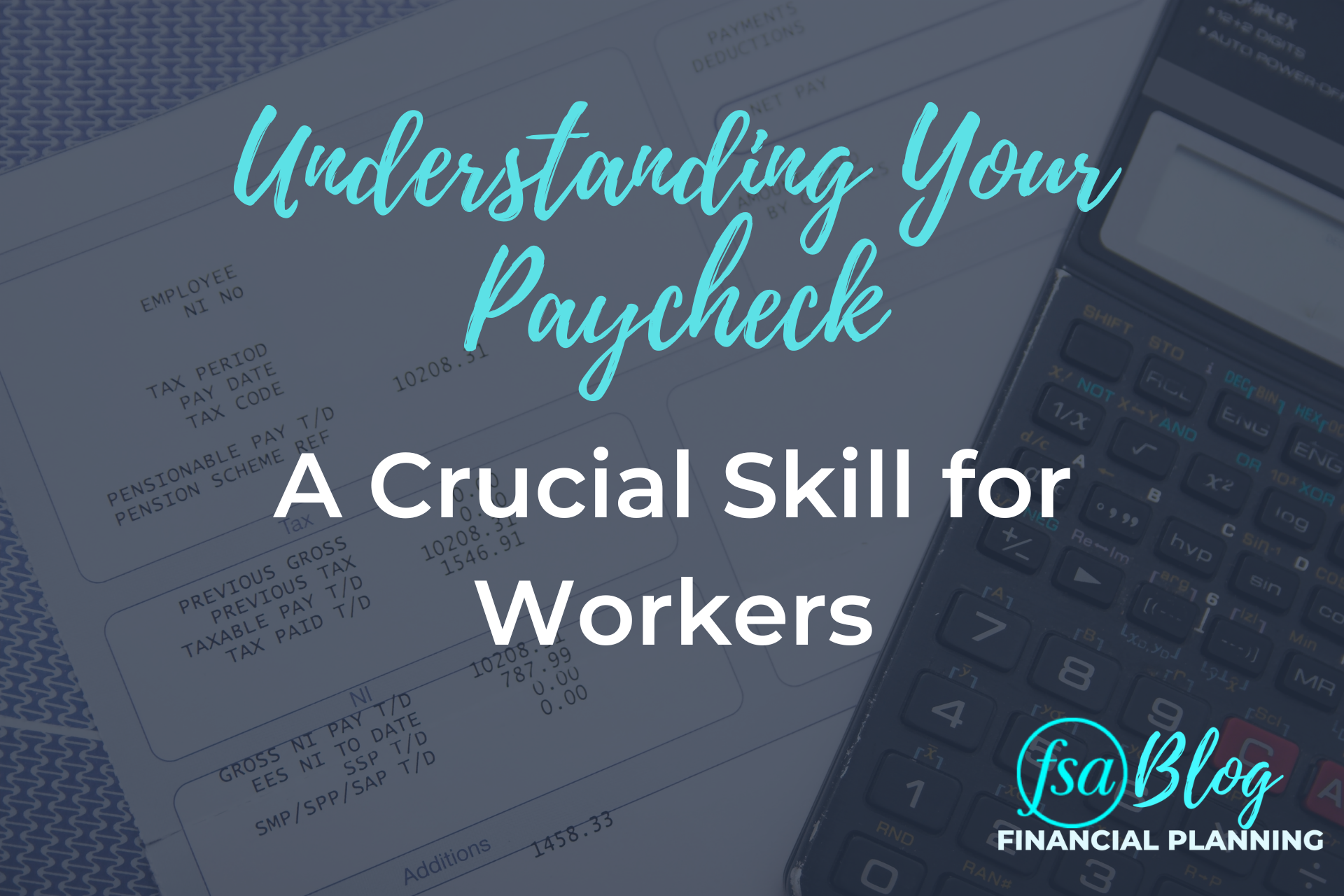Your paycheck is more than just a piece of (digital) paper; it’s a comprehensive breakdown of your earnings and deductions for that pay period. To the trained eye, a paystub can tell a lot about a person’s situation such as if they are contributing to their 401k, if they have a health savings account (HSA), or are opted into a group term life insurance plan. So, let’s get you up to speed and cover things to pay attention to on your next paycheck.
Gross Income
This is by far the easiest number to understand on the document. Your gross income is the total amount of money you earn before any taxes or deductions are taken out. This includes your salary or hourly wages, bonuses, commissions, and any other sources of income. For example, if your salary is $100,000 and you receive 26 (bi-weekly) paychecks in a year, then your gross income should be $3,846.15 on each paycheck. Enough said, let’s move on.
Pre-Tax Deductions
Pre-tax deductions are amounts withheld from your paycheck before taxes are calculated. Common pre-tax deductions include contributions to retirement accounts such as a traditional 401k, health savings accounts (HSAs), and health and dental insurance premiums. By contributing to these items on a pre-tax basis, you can lower your taxable income and potentially reduce your tax bill.
One of the most significant opportunities for long-term savings on your paycheck is through 401k contributions. Many employers offer matching contributions, which is essentially free money added to your retirement savings. At a minimum, strive to contribute enough to receive the full employer match as it’s essentially a guaranteed return on your investment. Contributing more to your 401k is always encouraged, but the exact amount you should be contributing is dependent on your personal situation and how much you might be saving outside of a 401k. A financial advisor can help you with that equation. As a side note, if you have a Roth 401k, then the contributions may be an after-tax deduction.
Taxes
Taxes are one of the most significant deductions from your paycheck. They include federal income tax, state income tax (if applicable), and Federal Insurance Contributions Act (FICA) taxes which fund Social Security and Medicare. It’s essential to review your tax withholding to ensure you’re not overpaying or underpaying taxes throughout the year. Adjusting your withholdings can help maximize your take-home pay or prevent a hefty tax bill come tax season. Each year after you file your tax return, it is good practice to review your withholdings. For example, if you received a large tax refund, you could decrease your withholdings. The opposite is true if you end up owing taxes on April 15.
After-Tax Deductions
Unlike pre-tax deductions, after-tax deductions are taken out of your paycheck after taxes are calculated. These deductions may include Roth 401k contributions, life insurance and disability premiums, union dues, etc. While post-tax deductions don’t offer immediate tax benefits, they may provide other valuable benefits such as insurance coverage or tax-free withdrawals in retirement.
Other Benefits
Fringe benefits are additional perks provided by your employer beyond your salary or wages. These benefits can include discounts on health insurance, dental and vision coverage, paid time off, retirement/HSA employer contributions, and tuition reimbursement. Understanding and taking full advantage of your employer-provided benefits can significantly enhance your overall compensation package and improve your financial health. There may be benefits that you have not opted for, which can be like leaving money on the table.
Net Income
Your net income, also known as take-home pay, is the amount that hits your checking account after all deductions have been taken out. This is the amount that will cover your living expenses, save for future goals, and enjoy life. Understanding and monitoring your net income can help you budget effectively and ensure you’re living within your means.
Review Your Paystubs Often
In addition to understanding the components of your paycheck, it’s essential to regularly review it for accuracy. Mistakes happen. Incidents such as incorrect tax withholdings or missing contributions to retirement accounts can have significant financial consequences. It’s better to catch and fix the mistake before it is too late. If you notice any discrepancies, be sure to address them promptly with your employer’s payroll department.
Your paycheck is a crucial part of your overall financial picture. One can learn a lot by looking at a person’s paycheck. We hope you are now well equipped to start regularly reviewing your paystub and ensure you are getting the most out of your employer benefits.
If you want a financial advisor to examine your paystub, send us an email at questions@FSAinvest.com or click here to schedule a call with one of FSA’s CERTIFIED FINANCIAL PLANNER™ professionals. See you in the next blog post!
FSA’s current written Disclosure Brochure and Privacy Notice discussing our current advisory services and fees is also available at https://fsainvest.com/disclosures/ or by calling 301-949-7300.










